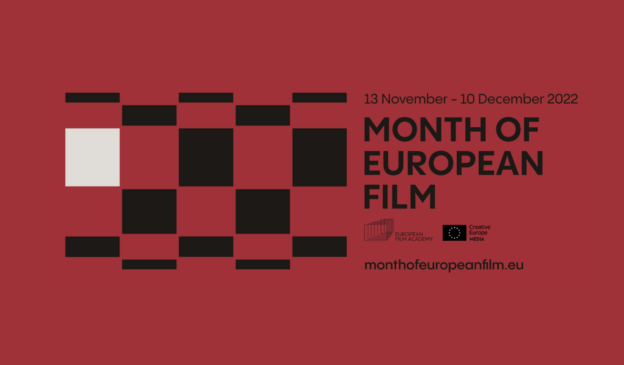After four weeks of celebrating the great diversity of European film, the newly introduced Month of European Film came to an end at last Saturday’s dazzling celebration of the European Film Awards in Reykjavík. Across Europe, thanks to the Academy’s partner Europa Cinemas, flagship cinemas in 35 countries participated. In hundreds of screenings, often packed and sometimes even sold out, they highlighted European films, presented special programmes, events and dedicated retrospectives. Furthermore, during the whole month, the global streaming platform MUBI presented their subscribers a special focus on European films, allowing film lovers around the world to participate.
“With establishing Europe’s own film and award season we wanted to strengthen the visibility of films made in Europe – both on a national and a European level. Looking at the effort and the many activities of participating cinemas from Malta to Estonia, from Portugal to Ukraine creating their own local platform for European film under the pan-European umbrella of the Month of European Film, we already achieved this with our very first edition in 2022. The enthusiasm and commitment all our partners put into this four-week-window is more than amazing and makes me happy and proud”, says Matthijs Wouter Knol, CEO and Director of the European Film Academy. “The Month of European Film is a choice we made ourselves: we want European cinema, European stories to be a large part of our daily reality. The choice for European film can only be done by prioritising the visibility of European content and making sure it has a dedicated space. We are very much looking forward to further establishing and developing the Month of European Film as well as including more and more places and ways for film-enthusiasts to join in this great celebration of European films.”
The Month of European Film kicked off on 13 November with the European Arthouse Cinema Day, a project organised by CICAE, and the European Film Academy’s yearly Young Audience Award, followed by many different activities: There have been retrospectives from renowned European filmmakers such as Lars von Trier (in Prague, Czech Republic), Jacques Tati (in Kolding, Denmark), Jonas Mekas (in Prishtina, Kosovo and in Tel Aviv, Israel), as well as Agnes Varda (in Ferrol, Spain). Participating cinemas organised festivals and focus weeks dedicated to European films such as the Human World Filmfestival (in Vienna, Austria), the Student Film Festival (in Rijeka, Croatia), the Ukrainian Film Festival (in Orion, Helsinki), the French Film Festival (in Glasgow, UK), the Spanish Film Festival (in Milan, Italy), the Hungarian Film Week in Bucharest (Romania), the Spanish Film Focus in Wroclaw (Poland), the Francophone Film Festival in Prishtina (Kosovo), an Italian retrospective with Italian cuisine in Kyiv (Ukraine) and the Nordic Films Retrospective in Tel Aviv (Israel). Some cinemas offered special programmes like the Documentary Monday (in Prague, Czech Republic), MonGAY (in Berlin, Germany), Wednesday Screenings for Seniors (in Wroclaw, Poland), a family & children programme on Sundays (in Ferol, Spain), short films screenings for people living with dementia (in Kolding, Denmark), screenings of films by female directors and much more. Many of the screenings were accompanied by a Q&A with directors and other talents, film parties, receptions or other events.
More initiatives and events can be found here:
www.monthofeuropeanfilm.eu
The European Film Academy is delighted to have broadened its partnership with the global streaming platform MUBI which featured 100 European films from classics to truly great new films, in the original language during the Month of European Film.
The Month of European Film is an initiative of the European Film Academy supported by the Creative Europe MEDIA Programme of the European Union and working together with partners such as Europa Cinemas, CICAE and MUBI and many local partners.

